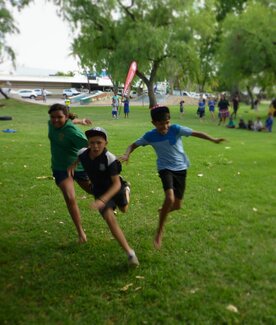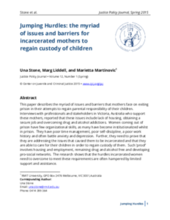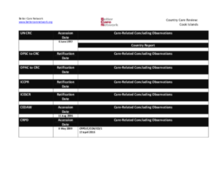

Displaying 601 - 610 of 677
This paper describes the myriad of issues and barriers that Australian mothers face on exiting prison in their attempts to regain parental responsibility of their children.
This country care review includes the care related Concluding Observations adopted by the Committee on the Rights of Persons with Disabilities. The Committees' recommendations on the issues relevant to children's care are highlighted, as well as other care-related concluding observations, ratification dates, and links to the Universal Periodic Review and Hague Intercountry Adoption Country Profile.
In this article, the author explains her perspective on the role of adoption in child protection, particularly in the Australian context.
This article, from the Australian Women’s Weekly, sheds light on the abuses of international surrogacy.
Anglicare, a welfare organization in Australia, is calling for a drastic change in the foster and state care systems, says the article. The organization is advocating for foster care funding to be extended to 21-year-olds.
This review of literature covers international material related to stability and permanence for disabled children, in particular permanence achieved through fostering and adoption.
Two Australian adoptees, taken from their parents as children, are concerned with recent federal government plans in Australia to “streamline” intercountry adoptions.
This report aims to provide the basis for an agenda to improve university attendance among care leavers in Australia by highlighting the nature and extent of the problem, and suggesting practical solutions within both the education and community service sectors.
Some private schools in Australia are taking students on volunteer trips to orphanages in Asia. But “what do these trips mean for the children in orphanages?,” this article asks.
The Secretariat of National Aboriginal and Islander Child Care (SNAICC) in Australia has voiced its concerns about new child protection legislation to be implemented in the Northern Territory, says the article.


